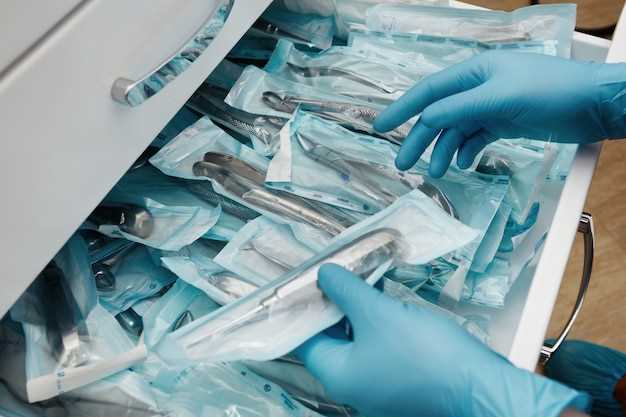
Tamsulosin is a medication commonly used to treat symptoms of enlarged prostate. If you are scheduled for dental surgery, it is important to inform your dentist if you are taking Tamsulosin. This medication can increase the risk of complications during dental procedures.
Before your surgery, your dentist will review your medical history and medications to ensure your safety. Be sure to mention any prescription or over-the-counter medications you are taking, including Tamsulosin.
Protect your health by being proactive about your medication and dental care. Talk to your dentist about Tamsulosin before your next dental surgery.
Tamsulosin and Dental Surgery
Tamsulosin is a medication commonly prescribed for the treatment of symptoms of enlarged prostate glands in men. However, its use can have implications for dental surgery procedures. Understanding the effects of Tamsulosin on dental surgery is crucial for both patients and dental professionals.
What is Tamsulosin?
Tamsulosin is classified as an alpha-blocker that works by relaxing the muscles in the bladder and prostate, making it easier for urine to flow. It is often prescribed to improve symptoms associated with benign prostatic hyperplasia (BPH). However, the effects of Tamsulosin on dental procedures need to be carefully considered.
Key Considerations
Patients taking Tamsulosin may experience challenges related to bleeding during dental surgery due to the medication’s effects on blood vessels. This can impact the healing process and increase the risk of complications. Dental surgeons need to be aware of these potential risks and take appropriate precautions to ensure the safety and well-being of their patients.
Overall, understanding the interaction between Tamsulosin and dental surgery is essential for providing optimal dental care to patients who are prescribed this medication. By following guidelines and recommendations, dental professionals can minimize risks and ensure successful outcomes for their patients.
Impact of Tamsulosin on Dental Procedures

Tamsulosin is a medication commonly prescribed to treat symptoms of an enlarged prostate, such as difficulty urinating. It belongs to a class of drugs known as alpha-blockers, which work by relaxing the muscles in the prostate and bladder neck, making it easier to urinate.
When patients taking tamsulosin need to undergo dental procedures, it is important for dental surgeons to be aware of the potential implications. Tamsulosin can cause a condition known as intraoperative floppy iris syndrome (IFIS) during cataract surgery, leading to complications such as iris prolapse.
Though IFIS is primarily associated with cataract surgery, dental surgeons should still exercise caution when performing dental procedures on patients taking tamsulosin. Patients should be advised to inform their dentist about their medication before any dental surgery to ensure proper precautions are taken.
It is recommended to inform patients about the potential risks and benefits of dental procedures while taking tamsulosin, ensuring they understand the importance of disclosing their medication history to their dental provider.
Impact of Tamsulosin on Dental Procedures
Tamsulosin is a medication commonly prescribed for the treatment of benign prostatic hyperplasia (BPH), a condition that affects the prostate gland in men. When it comes to dental procedures, it’s important to consider the impact of Tamsulosin on patients taking this medication.
One important consideration is the potential for increased bleeding during dental surgery for patients on Tamsulosin. Tamsulosin can relax the smooth muscles in the blood vessels, leading to a higher risk of bleeding during invasive dental procedures such as extractions or implant placements. Dentists need to be aware of this risk and take appropriate precautions to minimize bleeding complications.
Furthermore, dentists should communicate with patients about their Tamsulosin use and any potential risks associated with dental surgery. It’s important for patients to inform their dentists about all medications they are taking, including Tamsulosin, to ensure safe and effective dental care.
In conclusion, the impact of Tamsulosin on dental procedures underscores the importance of careful planning, communication, and precautions to ensure the safety and well-being of patients undergoing dental surgery while on this medication.
Risks and Benefits for Patients
Patients who are prescribed Tamsulosin for their condition may experience both risks and benefits during dental surgery.
Risks:
- Potential for increased bleeding during and after dental procedures
- Risk of orthostatic hypotension (sudden drop in blood pressure) leading to dizziness or fainting
- Possible interference with anesthesia efficacy
Benefits:
- Improved urinary symptoms due to Tamsulosin’s action on the prostate gland
- Minimized risk of acute urinary retention during and after dental surgery
- Enhanced patient comfort and recovery post-surgery
It is essential for dental surgeons to be aware of these risks and benefits when treating patients taking Tamsulosin to ensure optimal outcomes and patient safety.
Guidelines for Dental Surgeons
1. Inform patients about the potential risks associated with tamsulosin use.
2. Obtain a detailed medical history to identify patients using tamsulosin.
3. Consult with the patient’s physician to determine the appropriate course of action.
4. Consider alternative medications or procedures for patients on tamsulosin.
5. Monitor patients closely during and after dental procedures for any adverse reactions.
6. Educate patients about the importance of disclosing their tamsulosin use before dental surgery.
7. Document all interactions and decisions related to tamsulosin use in the patient’s medical records.
Precautions and Recommendations
Precautions:
Before undergoing any dental surgery while taking Tamsulosin, it is crucial to inform your dentist about your medication. This will allow the dentist to make informed decisions about the treatment plan and take necessary precautions to minimize potential risks.
1. Consult Your Doctor:
It is advisable to consult your doctor or healthcare provider before scheduling any dental procedure while on Tamsulosin. They can provide guidance on how to manage the medication effectively during and after the surgery.
2. Monitor Blood Pressure:

During the dental surgery, it is essential to monitor your blood pressure closely, especially if you are taking Tamsulosin. Any significant changes should be reported to the dentist immediately.
Recommendations:
Here are some recommendations to consider when undergoing dental surgery while on Tamsulosin:
– Follow the dentist’s instructions carefully before and after the surgery.
– Maintain open communication with your healthcare provider throughout the treatment process.
– Stay hydrated and follow a nutritious diet to support the healing process.
– Report any unusual symptoms or side effects to your healthcare provider promptly.
